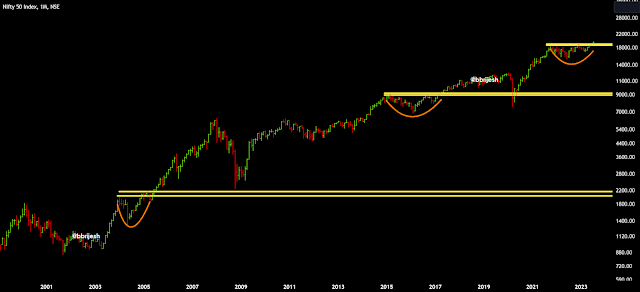System Trading vs Discretionary Trading: Which is Right for You?
System trading and discretionary trading are two distinct approaches to trading in financial markets. Here's a breakdown of the key differences between them:
1. System Trading:
System trading, also known as systematic trading or algorithmic trading, involves the use of predefined rules, algorithms, and automated processes to execute trades. These rules are typically based on technical indicators, quantitative analysis, mathematical models, and historical data. Traders who use system trading aim to remove emotions from the trading process by relying on a set of predetermined criteria for entering and exiting trades.
Advantages of system trading:
Emotionless Execution: System trading eliminates emotional decision-making, which
can lead to more consistent and disciplined trading.
Backtesting: Trading algorithms can be backtested using historical data
to assess their performance before applying them to real-time markets.
Faster Execution: Automated systems can execute trades at speeds that are
often faster than human reaction times.
Disadvantages of system trading:
Limited Adaptability: Algorithms may struggle to adapt to sudden market changes
or unforeseen events that are not accounted for in their rules.
Over-Optimization: There's a risk of over-optimizing trading strategies based
on past data, leading to poor performance in live markets.
Technical Challenges: Developing and maintaining effective trading algorithms
requires technical skills and resources.
2. Discretionary Trading:
Discretionary trading relies on the trader's judgment, intuition, and interpretation of market information to make trading decisions. Traders using this approach analyse various factors such as fundamental analysis, news, economic indicators, and technical patterns to identify trading opportunities. The final decision to execute a trade is made based on the trader's subjective assessment of the situation.
Advantages of discretionary trading:
Adaptability: Discretionary traders can quickly adjust their strategies
in response to changing market conditions or unexpected events.
Holistic Analysis: Traders can take into account a wider range of information,
including qualitative factors that might not be easily quantified.
Experienced Traders: Discretionary trading can be particularly effective for
experienced traders with a deep understanding of market dynamics.
Disadvantages of discretionary trading:
Emotional Bias: Emotional factors can influence decision-making, leading to
inconsistent results and potentially poor choices during high-pressure
situations.
Lack of Consistency: The lack of rigid rules can result in inconsistent trading
outcomes.
Subjectivity: Interpretation of market information can vary from trader
to trader, leading to differing conclusions about the same market conditions.
In summary, system trading relies on automated strategies and predefined rules to execute trades without human intervention, while discretionary trading involves human judgment and interpretation of market information to make trading decisions. Each approach has its strengths and weaknesses, and traders often choose the one that aligns with their skills, risk tolerance, and trading goals.


Comments
Post a Comment